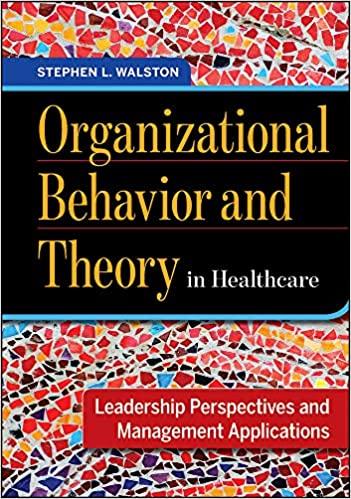What are the consequences when a boss spends most of her time on nonstrategic decisions? The CEO
Question:
What are the consequences when a boss spends most of her time on nonstrategic decisions?
The CEO of a large health system with more than 9,000 employees, 20 of whom reported to her, liked to be involved in decisions, even if they were trivial. In fact, often she put off making a big decision because she was too busy making small ones. Effectively, she was a great “firefighter,”
resolving crises daily, but was a very poor leader, as she refused to delegate much to her managers.
The effort to get approval for many activities was excessive, as the CEO required a paper trail and expected to sign off on even the most trivial decisions in writing. For example, during a strategic planning effort, the organization had brought in two prominent international consultants.
Combined, they were being paid in excess of $10,000 per day. At noon on the first day of their visit, the director of strategy asked if they would like to join him for lunch in the organization’s premier dining room. The director, however, had forgotten to obtain the CEO’s approval for this expenditure, which was about $15 per person, and he was unable to take the consultants to the dining area without written approval. The director apologized and asked the consultants to sit in his office until he could get the approval. The two consultants sat, wondering whether they were going to eat that day. About 45 minutes later, the approval form was finally signed and the three left for a late lunch.
Step by Step Answer:

Organizational Behavior And Theory In Healthcare Leadership Perspectives And Management Applications
ISBN: 9781567938418
1st Edition
Authors: Stephen Walston





